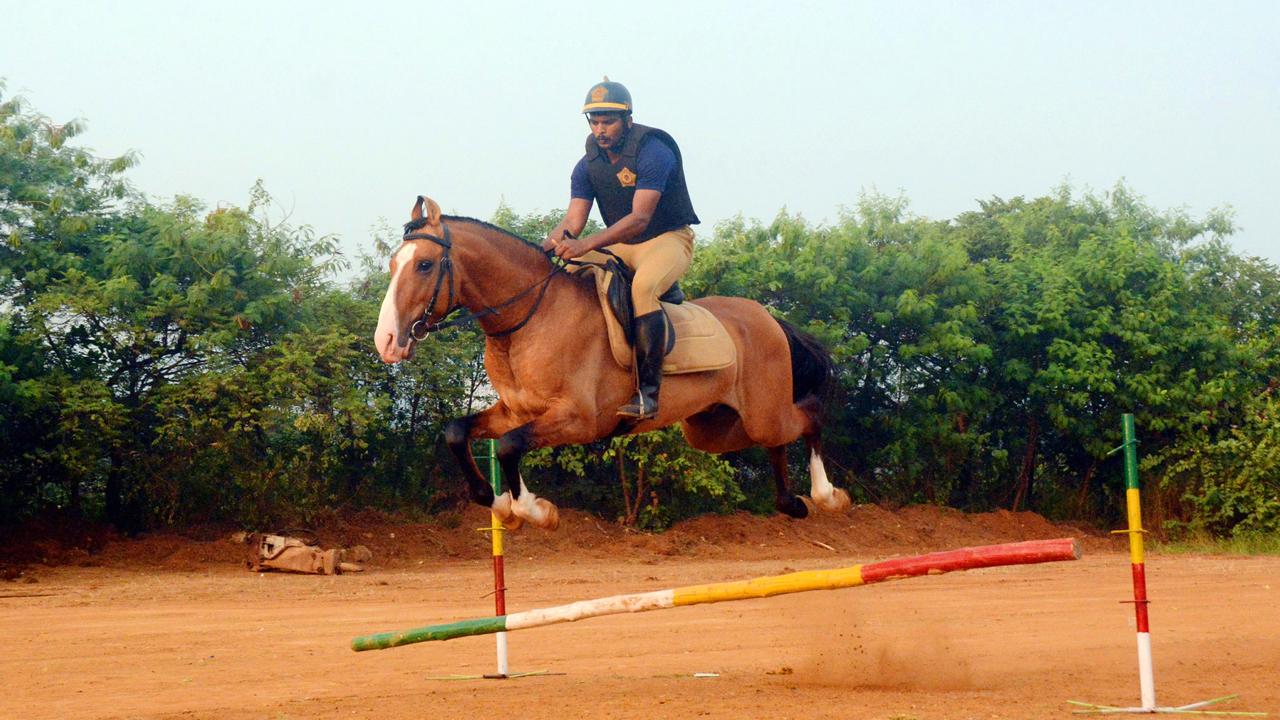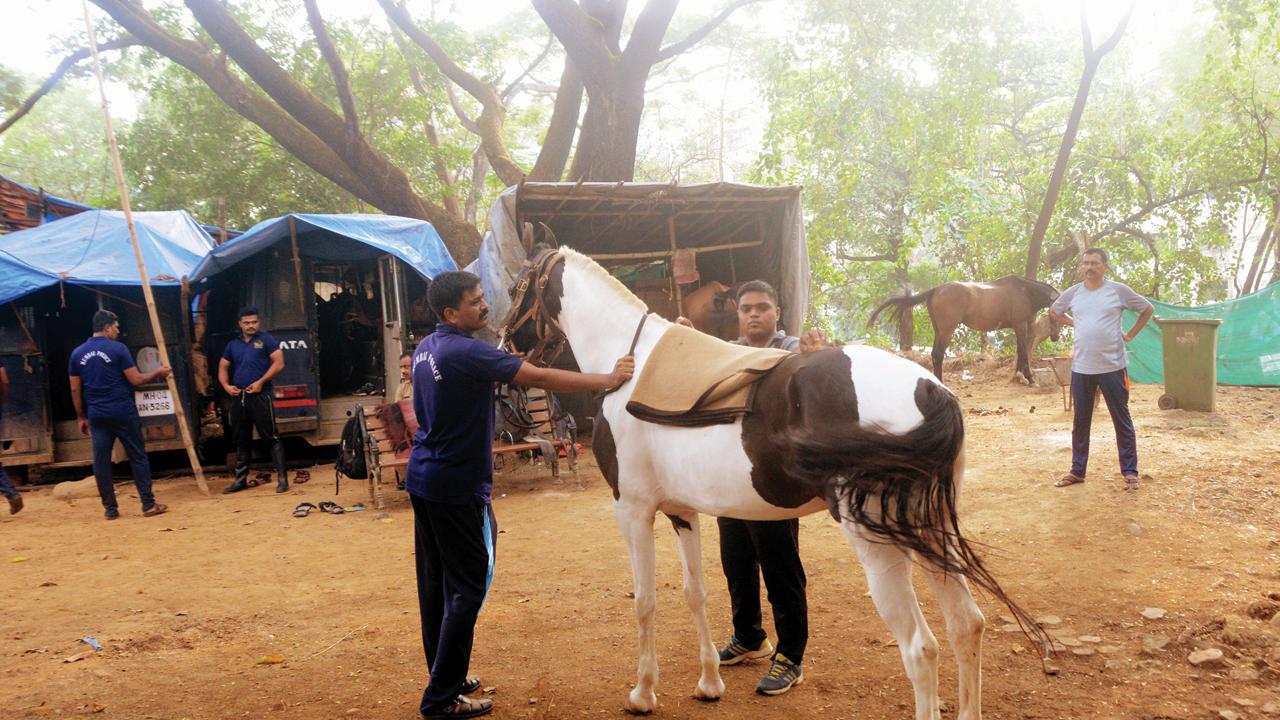They were inducted into Mounted Police Unit in January 2020; experts say condition detected late, which made intervention impossible

Mounted Police Unit rider Sushant Rupnar with his horse Badal along with sub-inspector Sagar Uattam Shinde during their practice session at Marol. Pic/Satej Shinde
Four of the 13 horses that the Mounted Police Unit of the Mumbai Police had procured for beach patrolling in January 2020 have died due to a gastrointestinal disease. The disease — Colic — can be caused by a number of factors, which include gas formation, impaction, grain overload, sand ingestion and parasite infection. Of the total number of horses, seven are Arabian and six Indian. Out of the seven Arabian ones, four — Padmakosha, Shivalik Skies, Divine Solitaire and Beekwerk — died due to the disease.
One Indian horse that was sick has been retired. The 13 horses were inducted in the unit on January 26, 2020. In 2018, the then Mumbai police commissioner Subodh Kumar Jaiswal (now CBI chief) had submitted a proposal to acquire 30 horses at a cost of Rs 1.5 crore.
 Rider Sushant Rupnar with his horse Badal during their practice session at Marol
Rider Sushant Rupnar with his horse Badal during their practice session at Marol
The Mumbai Police have set up a stable for these horses in Marol, where they are also trained. An ambulance is stationed near the stable round-the-clock to take them to the beaches of Juhu and Girgaum where they are used for patrolling. The ambulance also carries their food and water. A doctor and medicines are also there at the stable.
Apart from this, the doctors of Parel’s Veterinary Hospital and Mumbai Race Course are constantly in touch with the cops for the health checkups of the horses.
 Mounted Police Unit rider Babu Dabanwar with his horse Bijali during a practice session at Marol. Pics/Satej Shinde
Mounted Police Unit rider Babu Dabanwar with his horse Bijali during a practice session at Marol. Pics/Satej Shinde
Dr. Dinesh Lokhande, professor at Parel Veterinary College, told mid-day, “Colic is a type of stomach disorder that occurs due to indigestion. There are many types of it. If a horse eats less food or eats more, it may develop a stomach-related disease. Sometimes gas forms in the stomach, due to which their intestines rotate and the pain increases. Colic disease is common in horses, but if it is detected early, it is curable. But in this case the disease was detected late so they were not treated on time. Surgery can be done but it’s not always successful.”
mid-day reached out to Marol DCP Sunil Bhardwaj for his comment, but he was unavailable.
Speaking to mid-day, animal expert Lt Col (Dr) JC Khanna, who previously was officer-in-charge of Parel Veterinary College, said, “Since it is related to the digestive system, special care should be taken to feed the horses. They should be given food soaked in water so that they can easily digest it. Because of this disease, food accumulates in their stomach and when they jump, the intestine automatically rotates. This disease cannot be cured by medicines; surgery needs to be done. However, there are some post-operative problems.”
Meals for the horses
The horses are given food thrice a day, and water buckets are kept in front of them all day. When their day starts at 6 am, they are given soaked chana and oats. Barley and grass are given at 11 am. Beet, lusan grass and jaggery are given at 6 pm. Apart from these, they are also given dry grass. All food items are soaked in water.
A source told mid-day that the food for the horses is acquired through a contract. Under it, beet, carrot, grass, lasun grass etc. come daily. Special grass is acquired from Nashik. The cost of feeding each horse for a month ranges from Rs 20,000 to Rs 22,000.
Daily schedule
The horses are trained on a daily basis. Each horse has two riders, who train them. They are trained from 7.30 am to 9.30 am. Then they are bathed and given a massage. After that they are given food at 12 pm. Post the meal they are allowed to rest, and they are back on the field at 3.30 pm.
 Subscribe today by clicking the link and stay updated with the latest news!" Click here!
Subscribe today by clicking the link and stay updated with the latest news!" Click here!








